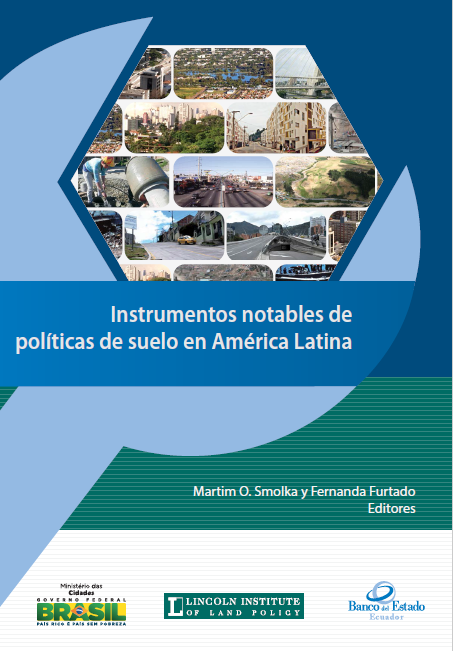Focal point
Location
Finding answers in land
The Lincoln Institute of Land Policy is an independent, nonpartisan organization whose mission is to help solve global economic, social, and environmental challenges to improve the quality of life through creative approaches to the use, taxation, and stewardship of land. As a private operating foundation whose origins date to 1946, the Lincoln Institute seeks to inform public dialogue and decisions about land policy through research, training, and effective communication. By bringing together scholars, practitioners, public officials, policy makers, journalists, and involved citizens, the Lincoln Institute integrates theory and practice and provides a forum for multidisciplinary perspectives on public policy concerning land, both in the United States and internationally.
The Lincoln Institute's work is organized into three thematic areas:
A Brief History
The Lincoln Institute of Land Policy traces its origins to John C. Lincoln, a Cleveland industrialist and investor who in 1946 established the Lincoln Foundation in Phoenix, Arizona. He was intrigued by the writings of Henry George, as expressed in the book Progress and Poverty(1879), in particular George's ideas about land ownership and taxation. Lincoln created the Foundation to support other institutions in the teaching, research, and publication of information about George's work.
From the late 1940s through the early 1970s, the Lincoln Foundation sponsored a variety of university-based education and research programs on theoretical and applied economics and taxation. In 1966 the Foundation established the John C. Lincoln Institute at the University of Hartford in Connecticut, and in 1968 it supported the creation of the Land Reform Training Institute in Taiwan (renamed the International Center for Land Policy Studies and Training in 1998).
The Lincoln Institute of Land Policy was established as a school in 1974 and became the Foundation's primary grant recipient to develop multidisciplinary education, research, and publications programs. The Institute focused on property valuation and taxation policy, urban planning and development, land economics, and property rights. To expand its work internationally, the Institute established the Program on Latin America and the Caribbean in 1993 and the Program on the People's Republic of China in 2003.
In 2006 the Lincoln Foundation and the Lincoln Institute of Land Policy merged to become a private operating foundation. The organization continues its focus on research, publications, and training, while seeking a more active role in the conversations that shape public policy decisions.
Members:
Resources
Displaying 1 - 5 of 13Gestão social da valorização da terra
Esse Caderno Pólis é fruto do projeto “Capacitação de agentes locais: instrumentos didáticos para o ensino da regulação urbanística” desenvolvido pelo Instituto Pólis e apoiado pelo Lincoln Institute of Land Policy. Este projeto parte do reconhecimento de que foi cumprida uma primeira etapa após a aprovação do Estatuto da Cidade, em 2001: a de construção de uma rede e disseminação por todo o território nacional de um grau básico de conhecimento a respeito do Estatuto da Cidade.
The Resolution of Land-Use Conflicts in Sao Paulo
São Paulo, Brazil, is a densely populated, globally connected urban center whose rapid growth has been associated with an increasing number of land-use conflicts. In this paper, I use interviews and ethnographic observations to examine the legal processes through which these conflicts are resolved.
Recuperação de mais-valias fundiárias urbanas na América Latina: Bravura ou Bravata?
Talvez a questão mais importante entre as várias que surgem na abordagem ao tema da recuperação pelo setor público de mais-valias fundiárias originadas no processo de urbanização, no Brasil como na América Latina, seja a do descompasso existente, e persistente, entre a teoria e a prática envolvidas no tema.
The Mara-Serengeti Ecosystem and Greater Maasailand: Building the Role of Local Leaders, Institutions, and Communities
Much of the effort to include communities in conservation of large
landscapes has been driven by interests outside the savannas, either by national
governments, NGOs, or foreign conservationists (Neumann 2002,
Brockington et al. 2008). Once included in conservation planning only as
an afterthought, local communities are now major stakeholders. However,
initiatives driven, led, and managed by local leaders, communities, and institutions
to meet the needs of both wildlife and people remain rare. The
Instrumentos notables de políticas de suelo en América Latina
Cada año muchas políticas específicas son implementadas en ciudades alrededor del mundo aspirando dar forma al desarrollo urbano, aumentar la productividad urbana, mejorar las condiciones de vivienda, reducir la congestión del tráfico, incrementar los ingresos, o alcanzar innumerables objetivos urbanos entrelazados. Estas aplicaciones de la política son esencialmente experimentos de gobierno cuyos resultados pueden ayudar a informarnos sobre lo que funciona y lo que no funciona en diversos entornos urbanos.





